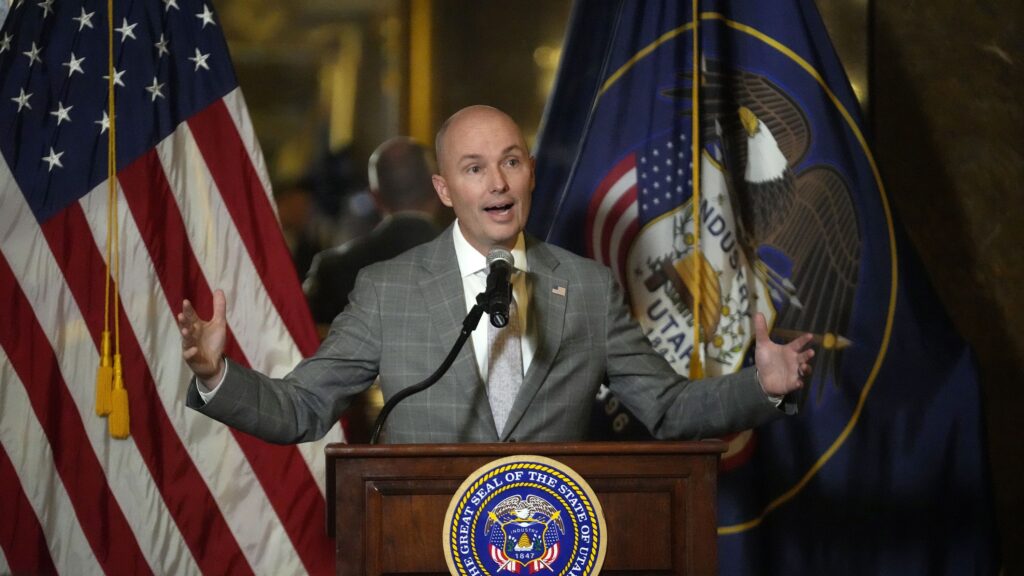Untangling the retail delivery fee | SLOAN


It is refreshing to witness Democratic State Senate President, Steve Fenberg, team up with Republican Sen. Kevin Van Winkle on a bill that has wide support from the business community – SB 143, which is designed to offer some relief to businesses tasked with administering the retail delivery fee foisted on them two legislative sessions ago.
Now Sen. Fenberg is not a sudden convert to Grover Norquist. He is a Democrat’s Democrat, and a formidable opponent of most applications of supply-side economics. But he is also a deeply intelligent and reasonable politician who recognizes when enacted policies reveal twists that render them untenable.
So it is with the retail delivery fee, a little landmine planted in the middle of the 200-some-odd page SB21-260, the enormous transportation funding package from a couple years ago. It imposes a 27-cent tax (the terminological distinction between “tax” and “fee” being officially obscured in Colorado) on the delivery of goods conveyed to a customer within the state by motor vehicle. Conceptually, maybe, the fee was designed to apply to delivery services, of the type that became ubiquitous during the pandemic; in actuality, by the definitions supplied, the fee applies to anything delivered to a consumer by anything with an engine and wheels. Which covers pretty much anything.
The fee itself has been annoying, at best, to most people, who see it charged on their receipts for everything from a late-night meal, to flowers, to construction materials, to cars. But the bigger issue, from a practicability standpoint, was in the way businesses were expected to administer it.
The way the fee-tax works is the retailer making the delivery is required to add it to the price of the delivery, collect it thusly from the customer, and remit the proceeds to the Department of Revenue. Now in order to do this, the retailer needs to reprogram whatever software it is they use to manage sales and apply requisite taxes and fees to the purchase. For businesses that may only make limited deliveries in a year, or that do not exclusively deliver their wares, this customized software upgrade can cost thousands of dollars to assess a 27-cent fee. If you are a business that makes only a handful of deliveries in a year, this well crosses the line of absurd. The state’s auto dealers, for instance, estimate that for any given dealer, assuming good sales annually, it could take 154 years to collect enough 27-cent delivery fees to cover the cost of the software upgrade.
One can also ably maintain the fee is a form of regressive business tax, insofar as a smaller business that does a lower dollar volume of sales needs to spend a greater percentage of their income on the upgrade than one that does a higher amount. For a small business that takes in only a few hundred thousand in sales, it is a simply indefensible expense.
Enter SB-143, the Fenberg-Van Winkle rescue. The bill makes three critical reforms to the retail delivery fee: first, it exempts small businesses – micro-businesses, really, those that have less than $500,000 in annual sales – from having to deal with the tax altogether; second, it allows the rest of businesses to decide whether they want to add it to the delivery price on the customer receipt or pay the fee directly, on behalf of the purchaser, thus eliminating the need for an expensive software upgrade; and third it waives processing costs for a retailer paying the fee to the Department of Revenue electronically.
There is, of course, a touch of regret concerning the bill’s temporizing on the matter of the retail delivery fee itself. It really should be eliminated altogether. A bill to do just that was in fact introduced by the House Assistant Minority Leader, Rose Pugliese, in response to the torrent of anger expressed by her constituents at the new fee – both consumers who were vexed by the addition of yet another straw on the camel’s back, and business owners exasperated by the (in some cases insurmountable) difficulties faced with complying with the new law.
Alas, the noble effort was condemned from the start, and quickly dispatched in its first committee. Which leaves SB143 as the only life raft still floating. For all that, it is a sturdy life raft. The perfect, as they say, is the enemy of the good, and certainly no reason to deny a piece of legislation that aims at coherence, simplification and relief from encumbrance.
Kelly Sloan is a political and public affairs consultant and a recovering journalist based in Denver.













